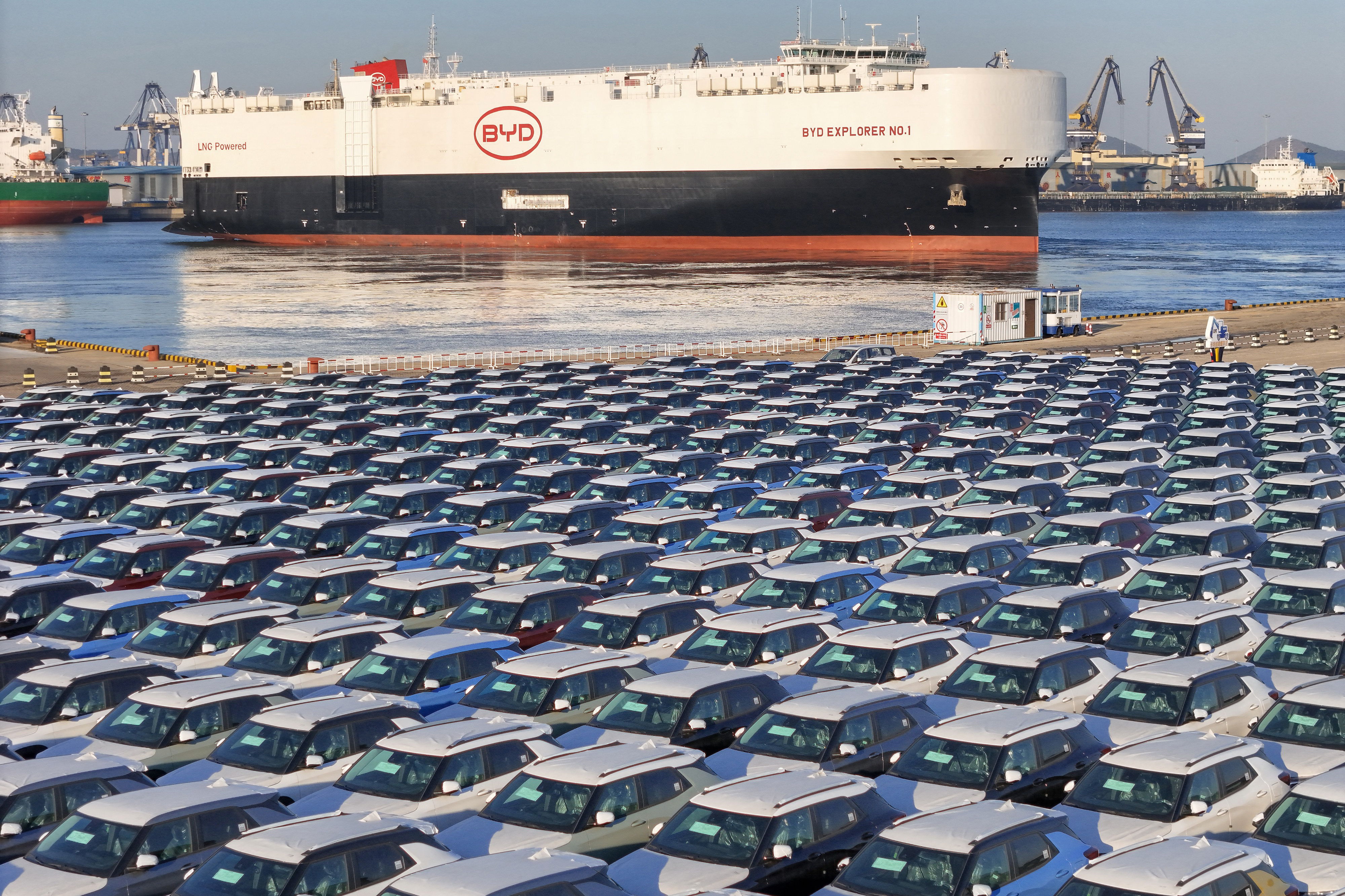EU to impose higher tariffs on Chinese electric vehicles

The European Commission intends to impose additional tariffs of up to 38 per cent on imports of electric cars from China from 4 July. In the meantime, the Commission will try to find a solution with Beijing, it announced on Wednesday.
The Commission launched an investigation into the value chain of electric cars in China in September last year. It came to the preliminary conclusion on Wednesday that the country is artificially depressing prices and putting European producers at a disadvantage by giving state aid to car companies.
"This value chain benefits from unfair subsidies that threaten to cause economic damage to electric car producers in the European Union," said Commission vice-president Margaritis Schinas.
Provisional tariffs
While the Commission wants to cooperate with China to find a solution, it has already adopted provisional countermeasures in the form of tariffs. These will come into force on 4 July. However, they will not be effectively collected until the definitive tariffs are announced, at the latest in early November.
The tariffs will vary between carmakers, depending on the amount of state aid they received and their cooperation with the investigation. For example, BYD faces a levy of 17.4 per cent, Geely 20 per cent and SAIC 38.1 per cent. This is a far cry from the current 10 per cent tariffs.
Beijing has denounced the move as "protectionism" that violates international trade rules and will ultimately hurt European interests. "China will take all necessary measures to safeguard its legitimate rights and interests," said foreign ministry spokesman Lin Jian, alluding to possible Chinese countermeasures.
"China will take all necessary measures to safeguard its legitimate rights and interests"
German protest
Not all European countries are in favour of the tariffs. Germany, Sweden and Hungary are worried about starting an escalating trade conflict with China. However, member states can only object when the definitive tariffs are being discussed. At least 15 member states representing at least 65 per cent of the European population would be needed to stop them.
Shortly after the tariffs were announced, German Transport minister Volker Wissing took to social media to warn of a "trade war" with Beijing. "Vehicles should become cheaper through more competition, open markets and significantly better location conditions in the EU. Not through a trade war and market compartmentalisation," he wrote on X.
The tariffs are a sensitive issue in Germany, as China is a very important market for the German car industry. For Volkswagen, BMW and Mercedes, China is even the biggest national market.
PHOTO: © STR / AFP
Related news
